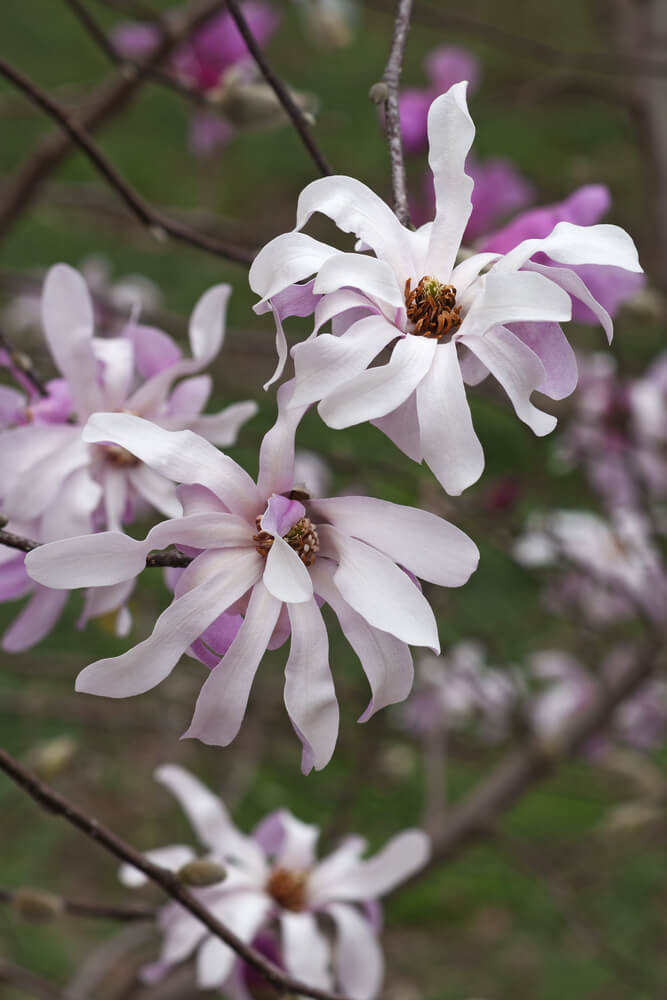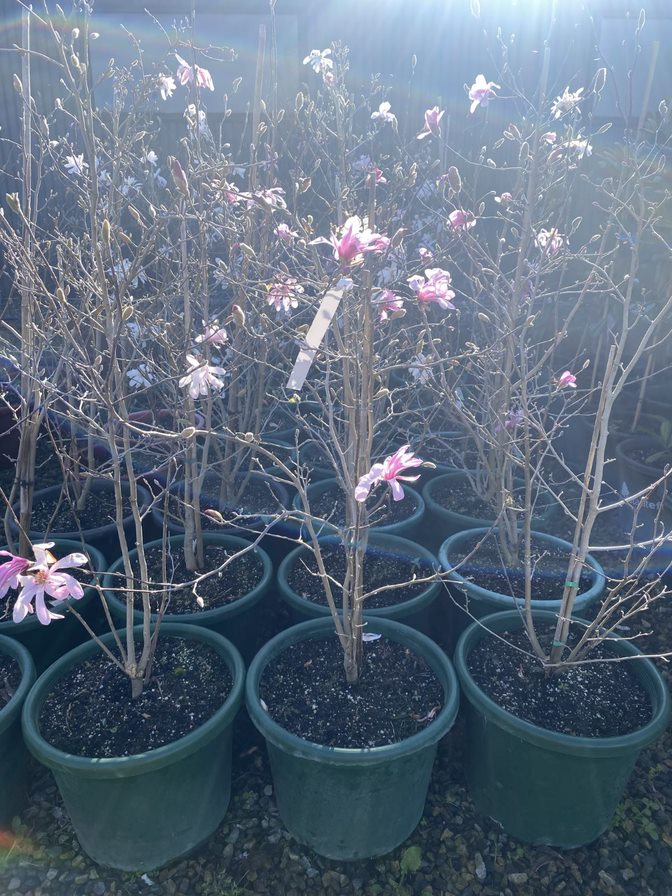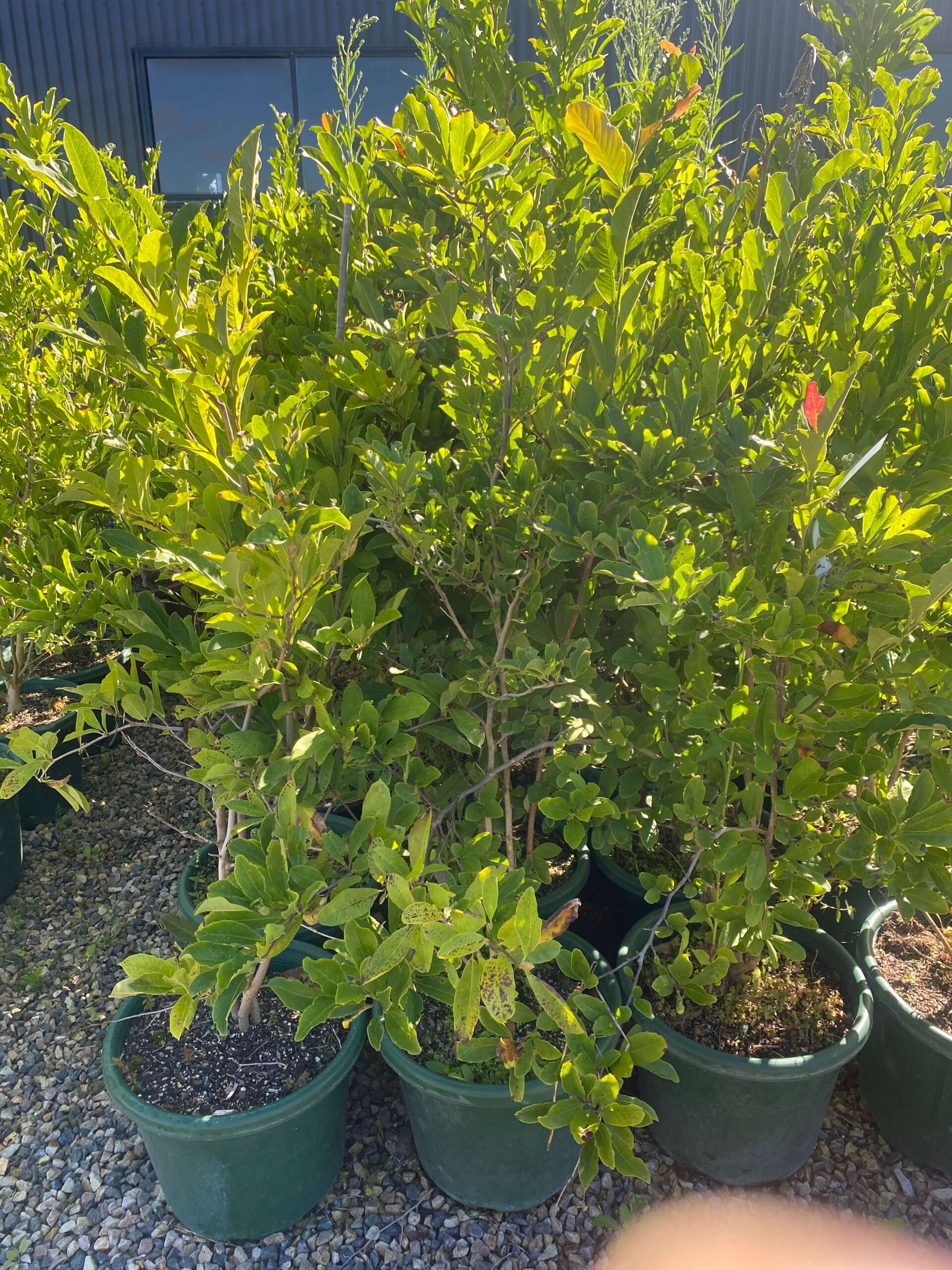Magnolia x loebneri ‘Leonard Messel’ 400mm pot size TREE DECIDUOUS
Original price was: $350.00.$175.00Current price is: $175.00.
Botanical Name: Magnolia x loebneri Leonard Messel
Common Names: Loebner Magnolia
Native: No
Foliage Type: Deciduous
Plant Type: Shrub, Tree
Plant Habit: Broad domed, Upright
Description:
A hybrid of Magnolia kobus and M. stellata. A beautiful Magnolia with delicate, fragrant, blooms that start as deep pink to purple buds and open to a pink blush. Giving a stunning mid spring display. This is a compact multi branching Magnolia that makes a great feature specimen. Also available as a espalier.
Mature Height: 2-4m
Mature Width: 1-2m
Position: Full Sun, Semi-Shade
Soil Type: Well Drained
38 in stock
Description
The genus Magnolia consists of about 210 species of deciduous and evergreen trees and shrubs, native to Asia and the Americas. They are known for their ornamental value, particularly their showy flowers and attractive foliage. Here are some horticultural notes on the genus Magnolia:
Climate and soil requirements: Magnolia trees prefer a temperate to subtropical climate with moderate rainfall. They grow best in well-draining, fertile soil, with a pH range of 5.5 to 6.5.
Light requirements: Magnolia trees prefer full sun to partial shade.
Watering: Magnolia trees require regular watering, especially during the first few years after planting. Once established, they are fairly drought tolerant.
Fertilization: Magnolia trees benefit from regular fertilization, especially during the growing season. A slow-release fertilizer with a balanced NPK ratio is recommended.
Pruning: Magnolia trees require minimal pruning, but dead or damaged branches should be removed as soon as possible. Pruning should be done in late winter or early spring, before new growth appears.
Propagation: Magnolia trees can be propagated by seed or cuttings. Propagation by cuttings is the most common method and produces plants that are true to the parent.
Pests and diseases: Magnolia trees are relatively pest and disease resistant, but may occasionally be affected by scale insects, spider mites, and fungal diseases. Regular inspection and treatment can help prevent and control these issues.
Landscape use: Magnolia trees are popular ornamental trees and are commonly used in temperate to subtropical landscapes, parks, and gardens. They provide attractive, often large, elliptic leaves in shades of green or variegated, and showy, fragrant flowers in shades of white, pink, purple, or yellow. They can be used as specimen trees, in mixed borders, or as a shade tree, and their unique foliage and flowers also add interest to landscapes. In addition, some species of Magnolia have medicinal value and are used in traditional medicine to treat various ailments.




